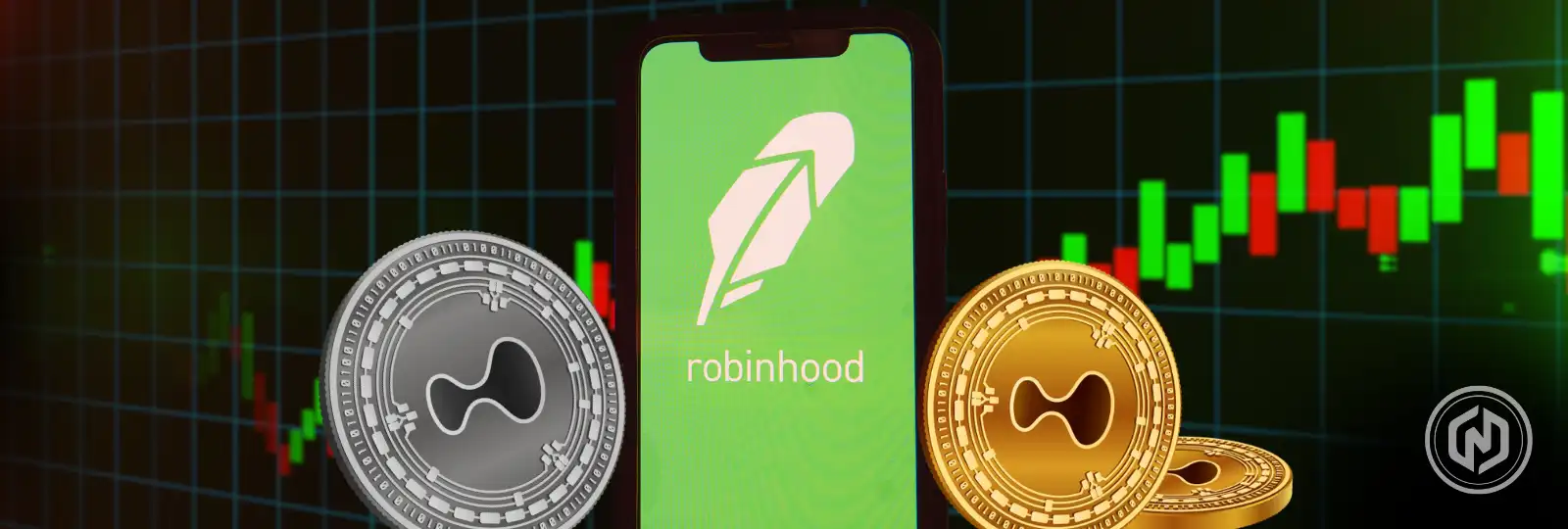- Hyperliquid surpassed Robinhood by $93B in July trading volume.
- A lean staff of 11 produces more than $1.167B in revenue annually.
- DeFi platforms such as Hyperliquid disrupt traditional financial institutions.
In July 2025, Hyperliquid, a decentralized exchange (DEX), hit an impressive $330.8 billion in trading volume, outpacing Robinhood by a notable $93 billion. The decentralized platform’s performance marked its third consecutive month surpassing Robinhood, as it gained a 39.1% lead over the centralized trading platform.
Hyperliquid Dominates Trading Volume in July
July performance by the Hyperliquid platform underlines the increasing role of decentralized finance (DeFi) platforms in the trading world. The platform has recorded an impressive trade volume of both spot and perpetual trading as compared with Robinhood, with a total volume of $237.8 billion.
The volume of Robinhood consisted of equities ($209.1 billion), options ($195.8 million), and crypto ($28.7 billion), with equities making up the largest proportion of the volume.
Meanwhile, Hyperliquid’s focus on offering a variety of derivative products and low fees continues to draw in traders looking for speed, efficiency, and liquidity.
A Lean Team Driving Big Revenue
Hyperliquid has one of the most impressive features: operational efficiency. The company operates with a mere 11 employees, yet has revenues of over $1.167 billion/ year. The above equates to an amazing 106 million per employee, far above the already established companies such as Tether Limited, which makes a total of 93 million per employee.
The platform is successful because it is highly automated, and the company can scale it without having to invest in heavy infrastructure along with human resource requirements, as is in traditional financial establishments.
Hyperliquid hit $330.8B in July spot and perpetual volume, topping Robinhood’s $237.8B by $93B (39.1%), its third straight month in the lead. The 11-member team generates $1.167B annualized revenue, over $100M per person, surpassing Tether.https://t.co/6fbNSa4oiH
— Wu Blockchain (@WuBlockchain) August 26, 2025
The efficiency of Hyperliquid has enabled the company to invest in product innovation, bulking liquidity, and next-generation security. The platform can scale fast, with the revenue per employee being high, which is an indicator of how lucrative such highly decentralized tech-enabled financial markets can be.
DeFi’s Growing Influence on Global Markets
The trend in financial circles is to move funds out of centralized exchange platforms and into DeFi exchanges. There is also a common call among traders to secure transparent and cost-effective systems to decrease the intermediaries.
The emergence of the more decentralized package of financial systems seeks to compete with the better-recognized financial systems, such as Robinhood.
Regardless of the success of Hyperliquid, it is vulnerable to some of the challenges that are shared across the entire DeFi industry, such as potential regulatory scrutiny and smart contracts.
That being said, with more institutions and individual investors increasingly participating in decentralized exchanges, the accomplishments made by Hyperliquid mark a new milestone in how financial trading will evolve moving forward, especially in crypto and derivative markets.
Hyperliquid has made yet another milestone towards becoming a major player in the DeFi sector, as it now rivals the major financial industries.
Hyperliquid (HYPE) token increased by 0.6% in the past 24 hours, reaching $45.43, which is slightly lower than its gains over the last 7 days (+7.3%) and 30 days (+4.8%).


